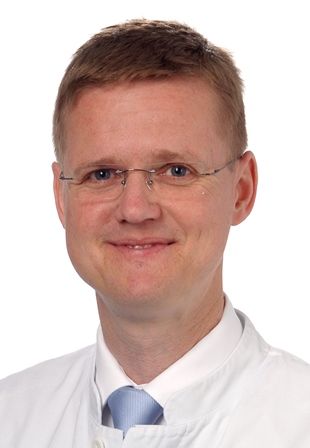Project overview Joint Funding
Evaluation of New Therapeutic Concepts in Relapsed AML
Program: MTT Funding Line: INNOVATION Project type: research project Entity: blood cancer Status: completed
Many cancers respond well to the first therapy but weeks, months or even years later the tumor comes back and, in many cases, the patients die of it. These so-called relapses are caused by tumor cells that were resistant to the initial treatment.
The focus of this research project lies on a clinical study, the so-called RELAZA 2 study (headed by U. Platzbecker, partner site Dresden) focused on the treatment of one type of blood cancer, the acute myeloid leukemia (AML). As part of the study, physicians of the DKTK sites and their colleagues at collaborating hospitals treat patients who have been diagnosed with an early stage relapse with a novel chemotherapy. They hope to slow down the relapsed disease or even stop or prevent it with the new therapy. The study is accompanied by intense research through DKTK scientists to improve the early and precise detection and treatment of relapses in AML patients.
The working group headed by Christian Thiede and Karsten Spiekermann from Dresden and Munich sequences the patients’ cancer genomes. The technology can detect cancer genes that might be used for early diagnosis or for a prognosis if a patient will profit from a certain therapy or not. At the same time, Christian Brandts and his colleagues in Frankfurt analyze the proteins of these cancer cells to test if changes in the abundance or structure of individual or several proteins allow for an accurate and early diagnosis or prognosis. Under certain circumstances the identified proteins might also be used as target structures for novel therapies.
In Munich, Irmela Jeremias works with the patients’ AML biopsies to simulate the patients’ disease in animal models as precisely as possible. These advanced models are particularly well suited to test new therapies. In collaboration with Simone Fulda from Frankfurt they also test substances that cause cell death.
Furthermore, Justus Duyster and Cornelius Miething in Freiburg and Magdalena Götze in Munich conduct functional studies with AML cells as well as specialized AML cell subpopulations, the cancer stem cells. They aim to gain a better understanding of the development, relapse processes and therapy resistance in AML patients. To this end, the scientists turn off single genes of these cells in cell cultures and animal models using high throughput technologies. This way they can study the role of these genes in AML.
Apart from the cancer cells themselves, cells in the surrounding of the tumor are suspected to also play a role in the development of the disease and of relapses. They can “protect” cancer cells from the chemotherapy. Therefore, Claudia Baldus’ team in Berlin investigates how these cells differ in AML patients in comparison to healthy people and how the cells interact with the cancer cells. Discoveries from this functional study with cancer cells of AML patients shall be implemented into new therapeutic strategies such as the identification of novel target structure on cancer stem cells or in the tumor microenvironment.
Involved Partnersites
Berlin, Dresden, Frankfurt/Mainz, Freiburg, MunichCoordinators

Prof. Dr. Christian Thiede
